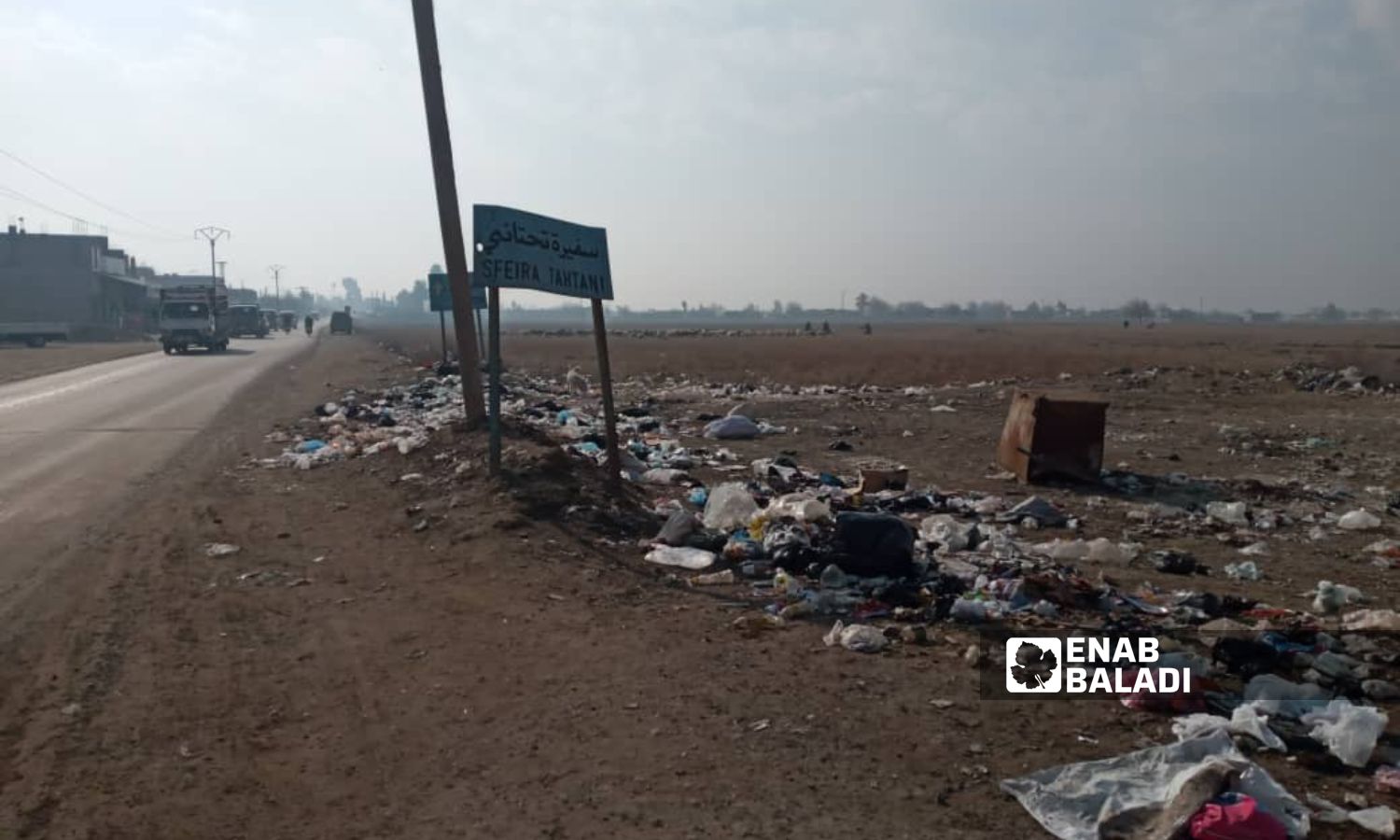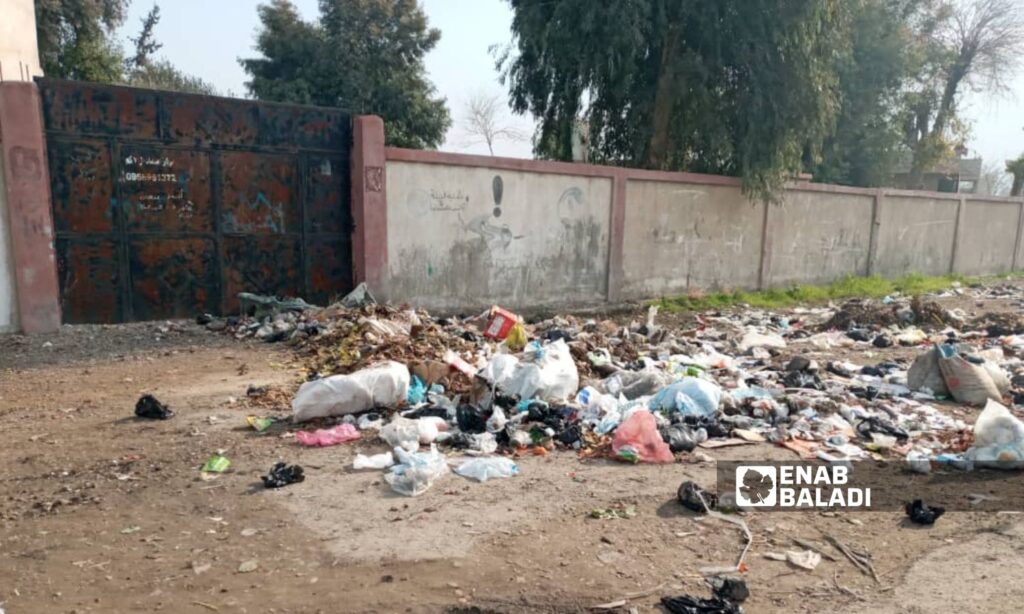Piles of trash have accumulated on the streets of Mheimide town, especially in the al-Hamoudi neighborhood, which is considered a vital area in the town. This situation threatens public health and directly affects the lives of the residents.
Mountains of garbage are stacked in front of homes and schools, turning the overall scene into an unhealthy environment, with no containers or alternative solutions to alleviate the crisis.
Insects and diseases
Sarah al-Jassem, a nurse at the Mheimide Health Center, stated that the piles of waste have led to the spread of insects and rodents, which are carriers of diseases.
She added to Enab Baladi that the decomposition of waste in open areas causes foul odors that affect the lives of the residents.
She noted that children passing by those piles on their way to school are at risk of infection and diseases, pointing out the presence of hazardous medical waste containing contaminated materials that can facilitate the transmission of diseases.

Residents of the neighborhood are calling for a quick solution to the garbage crisis – January 4, 2025 (Enab Baladi/Obadah al-Sheikh)
Calls for immediate solutions
Bashar al-Kadro, a resident of the al-Hamoudi neighborhood, complained about the spread of waste in front of his home and the abundance of insects, echoing the sentiments of several others interviewed by Enab Baladi.
Residents of the neighborhood demand radical solutions to the waste problem, including placing designated containers in appropriate locations and implementing a regular garbage collection mechanism.
Rajab al-Obeid, one of the neighborhood’s dignitaries, told Enab Baladi that the waste crisis requires immediate intervention from the responsible authorities, considering that the current situation is unbearable.
He added that the waste threatens the lives of residents and affects their daily health, emphasizing that solving the problem has become an urgent necessity to ensure a safe and healthy environment for the neighborhood’s residents.
He called for the need to handle medical waste safely to avoid endangering residents and to launch environmental awareness campaigns to educate the community about the importance of proper waste disposal and adherence to public health standards.
In the al-Hamoudi neighborhood west of Deir Ezzor, insects proliferate in places where garbage is spread – January 4, 2025 (Enab Baladi/Obadah al-Sheikh)
The rural areas of Deir Ezzor, under the control of the Autonomous Administration of North and East Syria (AANES), lack adequate services in essential sectors like health, education, water, and infrastructure.
Residents of villages and towns in eastern Deir Ezzor suffer from the accumulation of waste in regions like al-Sobha, Abriha, al-Basira, and their outskirts, leading to foul odors and the gathering of insects, rodents, and stray dogs around waste collection points.
The problem has worsened due to the limited vehicles available for waste transportation and the spread of random dumps in the area. Complaints regarding this matter are not new but have become a routine occurrence with little response, according to residents interviewed by Enab Baladi.











